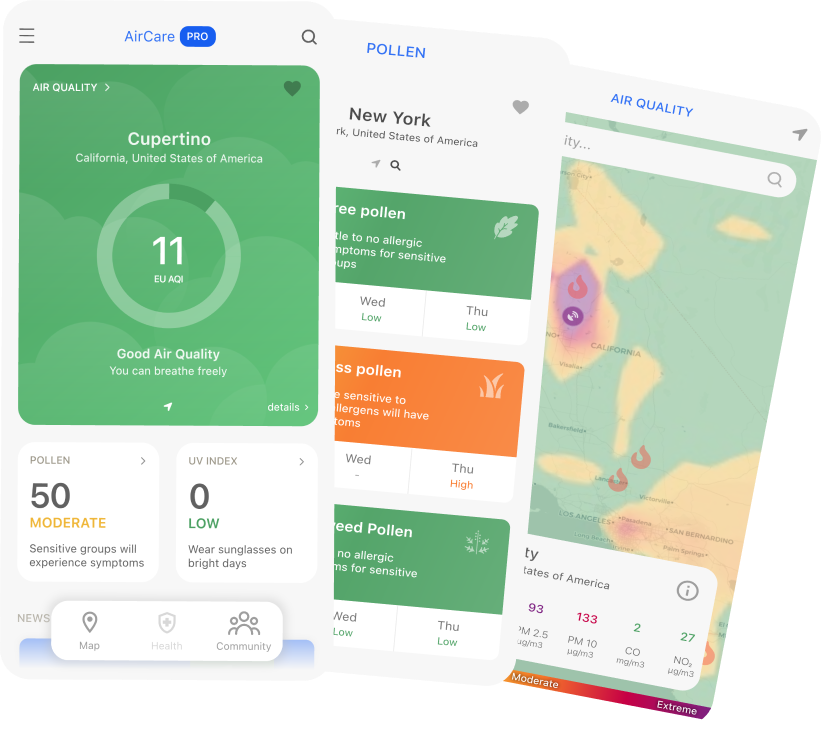Air is essential for all living beings on Earth. Poor air quality has a negative impact on the environment, as well as human health.
There are different types of air pollution, and they all have different effects on our health. The two most common types of air pollution are particle and ozone pollution.
Both make it harder to breathe by irritating our respiratory system, but they also have a more serious impact on our health. Some long-term health effects of air pollution include lung cancer, heart diseases, and respiratory diseases such as emphysema.
We know that poor air quality is especially bad for people who are sensitive to it such as people with respiratory ailments, older adults, and children.
Since air quality can have such a big impact on our health, we need to be alerted when pollution levels are high enough to be harmful.

Why Is It Important to Measure Air Pollution?
The quality of air isn’t the same everywhere. Pollution can build up in local sources and isolated pockets. For instance, a busy road or a factory can add to the overall poor air quality. Another thing that plays an integral part in the air quality is the weather conditions in a certain area.
To better understand this, let’s consider two areas. The first one is an area that has a high air exchange rate and fewer sources of air pollution, while the second one has a low air exchange rate with fewer sources of air pollution. Which one will have the worse air quality and why? The answer is the second one because this area has a low air exchange rate, which makes the pollutants build up in that location.
Because different locations have different levels of air pollution at different times of the day, it is important for us to monitor them to know what’s happening. In order to take action, we need to how air pollution occurs, where it is most concentrated, what elements are involved, and how we can counteract them. By doing this, we can identify sources of trouble and make sure we take the proper steps to reduce air pollution.
The data we collect from air quality monitoring can help us create an air pollution reduction strategy to protect the environment and our health. Air pollution reduction strategies should focus on the most polluting sources and target the areas with the worst air pollution in order to be effective and efficient. If air pollution strategies aren’t based on information collected by air quality sensors, they would be severely off target.
Moreover, measuring air pollution will help us determine whether the air pollution action plans we devised are working efficiently in a certain area or not.
As you can see, air quality monitoring is extremely beneficial in helping us gain a deeper understanding of the pollutants in the air. It is necessary for the safety and health of our society because knowledge of air pollution levels is needed to protect people from the harmful effects of air pollution.
How Can AirCare Help?
People need to be informed about the air quality, which is where AirCare steps in.
With AirCare, you have precise and up-to-date information on the quality of the air, no matter where you go. You can also see historical pollution data for all locations to see trends in movement. The data is easily accessible, and it is completely free.
Do you want to know the quality of the air you breathe? Download AirCare – our free mobile app that tracks air pollution from your pocket, and check out the AirCare blog!





